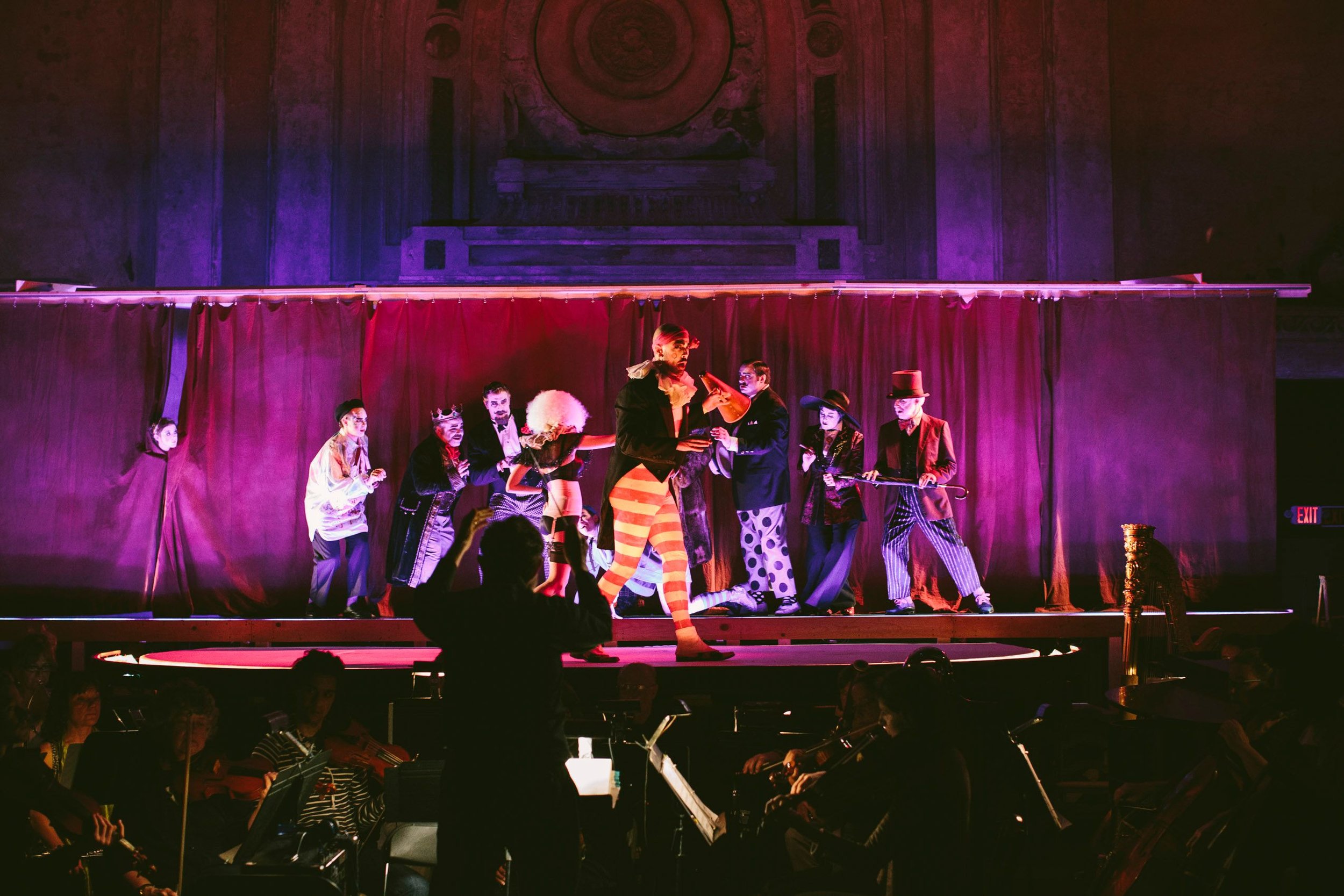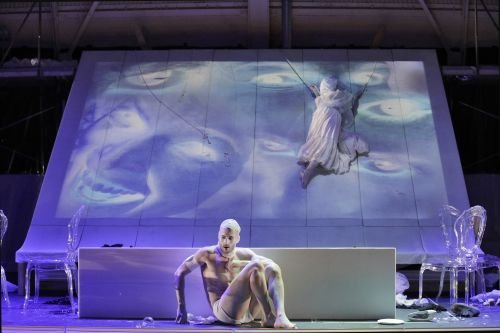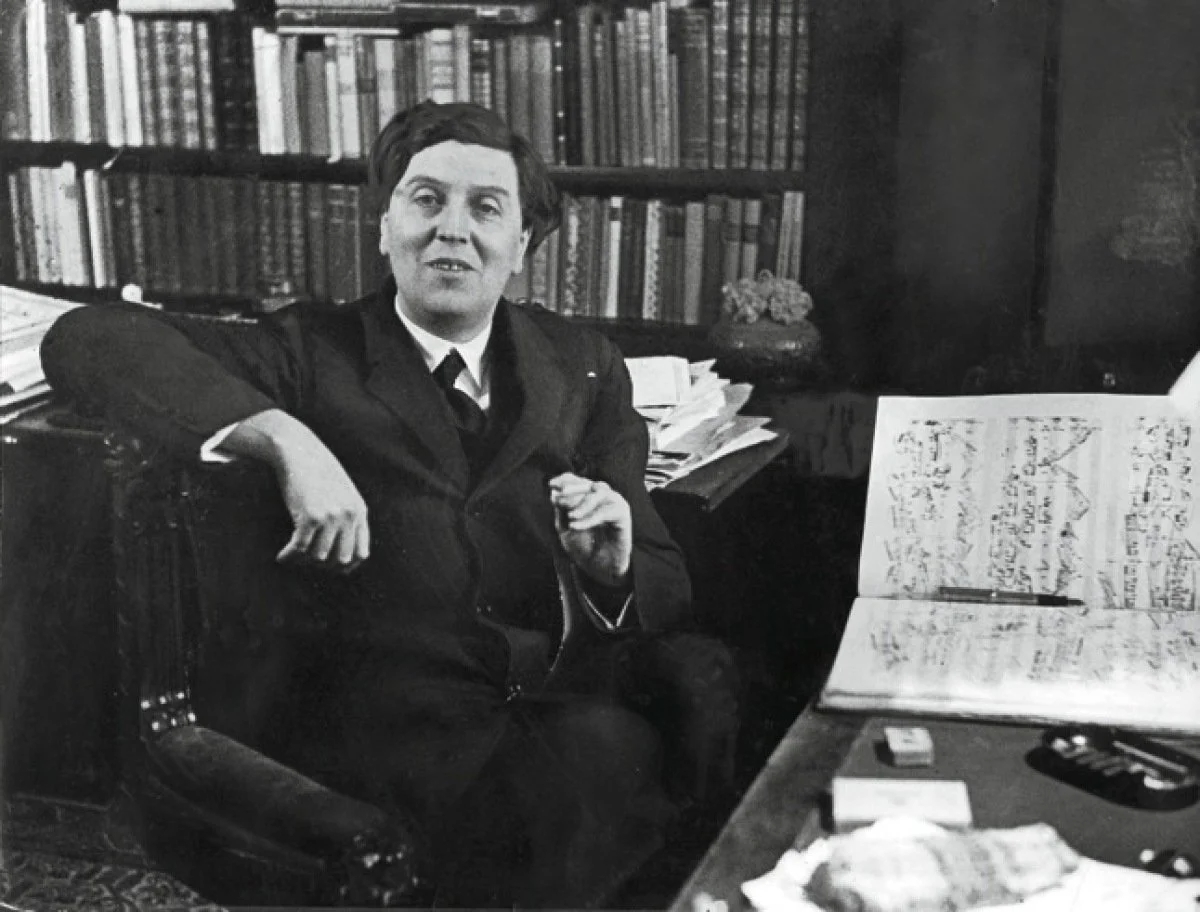5 Questions with Wozzeck Director Elkhanah Pulitzer
1.You’ve directed several provocative and visually stunning productions with West Edge Opera, including Lulu and Powder Her Face. What draws you to work with West Edge, and how does the company’s spirit of experimentation align with your artistic sensibilities?
I feel very free working with West Edge in a way that is quite liberating. The trust I feel working with Mark, Jonathan, and the entire WEO family provides a profound springboard for taking creative risks. That, coupled with the somewhat scrappy nature of how WEO has changed venues over the years, constantly revitalizing and reinventing how audiences encounter opera, sets up a relationship that gives permission to experiment, explore, and expand one’s creative interests.
I’ve been blessed, too, to work with some incredible artists who bring themselves fully, boldly, brilliantly to the work, which makes all the difference. There aren’t that many opera houses where one can create a sand pit hotel room (Powder) replete with falling sand or encounter Berg’s masterpiece (Lulu) in a gorgeous decrepit fallen Beaux arts train station. West Edge promotes taking risks, and so I feel at home working here where I’m encouraged to stretch out creatively.
2. Your work often mixes art forms in unexpected ways — like cello concerts with storytelling. You describe this as experimentation in art curation. How does that kind of thinking show up in your approach to directing?
At its core, opera is an amalgamation of multiple art forms — that’s why it’s famously called ’gesamtkunswerk’ or ’total work of art.’ Any art practice can go through the same process and presentation of opera performance, really. It's limitless. My inspiration for each piece comes from within the work, looking deeply at the heart of the piece itself and intuiting how best to illuminate that core. Each work guides what is needed, and my inspirations come from various corners of the human experience, whether it’s art history, architecture, psychology, society, etc., it all goes into the mix to inform how to approach the story telling and world building.
I am always excited by performances that can awaken a space for the audience in new ways or offer new forms of connection. I’m also deeply interested in the power of art to teach, heal, transform humanity and I believe that storytelling can create change, even if it starts within the hearts and minds of audience members who then carry that awakening/awareness into how they engage with others and the world around them.
3. You’ve worked closely with living composers and modern music. What’s it like bringing that kind of fresh energy to a piece like Wozzeck, which was way ahead of its time when it premiered?
Berg is brilliant and Wozzeck is one of his masterpieces. I jumped at the chance to work on this, particularly after having done his LuLu.
I love working with talented composers! I feel so lucky to do so. Berg is still so fresh and modern that it feels like his work leaps from the page with relevance and power. I’ve been giving thought to what makes a work stand the test of time, what makes it stand out from the rest that fade. There’s something in all truly great work that taps into a deeper vein of the human experience, that touches on the eternal or the uncanny, something that rests beyond the seen and known of the journey of being alive. Tapping into that is what nourishes a deeper sense of being part of something greater in the universe and in our society. In other words, we are not alone, and we cannot name all we experience; there are worlds within each of us that might be hard to grasp, but are part of the profound mystery of life. Working on an opera that taps into greater mysteries of life is one of the gifts of being an artist.
4. Berg’s Wozzeck is intense, emotional, and sometimes challenging. What excites you about telling this story, and how do you want audiences to feel walking out of the theater?
I love that it’s so rich and deep. Wozzeck grapples with so many forces that impact society: social hierarchies, the military industrial complex, the medical industry, sex working, poverty and the direct impact it has on mental health… I could go on. What really matters though is that it is a story about a man who has imagination, is squeezed by societal forces to the point of breaking, and murders someone he loves. Finding a way to hold the horror of what happens along with some lingering compassion for how it all came to pass, as well as contemplating the greater community’s culpability in the violence in this petri dish of a world, are some of the ideas I hope people take with them.
There’s also something deeply satisfying about watching something that is perverse, sexy, disturbing, and dark. We want to see scary extreme things that reveal the underbelly, fears, and longings that reside within each of us, ideally enacted onstage in performance where we can experience catharsis and transformation without having to experience those aspects in the real world.
5. Arts organizations are facing a lot of challenges as funding shifts, audience taste and habits change, and competition for audience attention is at an all time high. What is it about opera that you feel can speak to modern sentiments?
It's a story as fresh as this morning’s news. It is timely and timeless. Wozzeck is intense — it packs a punch while asking how we want our society to function. What values do we want to uphold in the face of an industrial complex and a system that does not see or serve the impoverished? Social service nets being removed in our country right now align with the negative message of this opera — sometimes so profoundly that it’s a bit painful to contemplate. Beyond that though, there is great mystery at the heart of the work, and a sense of humor that pokes fun while ultimately calling out that we must do the good work and stay vigilant in service of constantly renewing a social contract that supports people, resources, and the earth.





